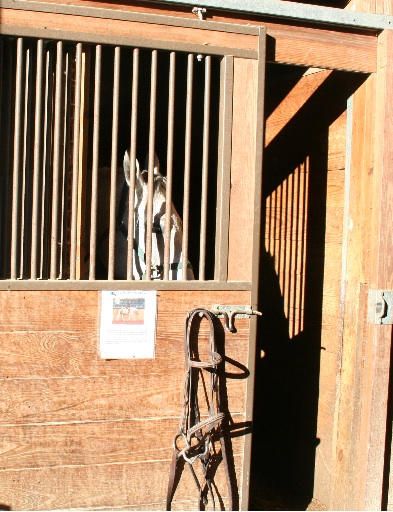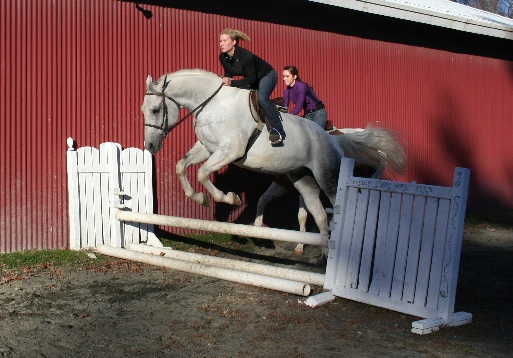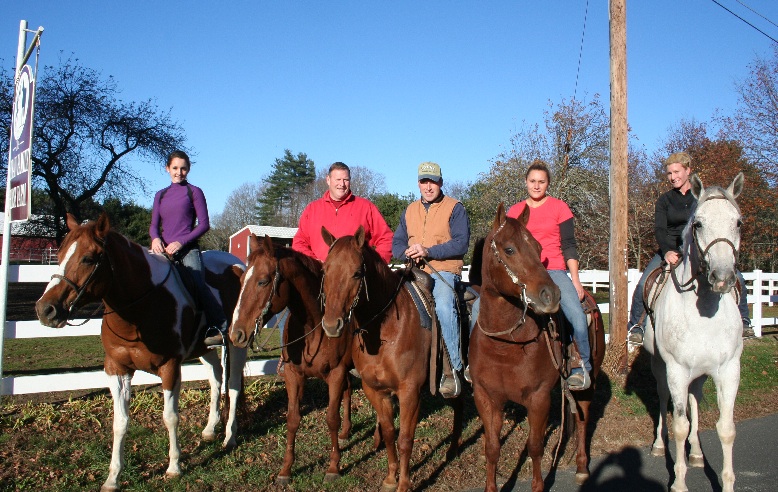Saddle Up With Strain Family Horse Farm
“Matching the right horse to the right person” is the objective of the Strain Family Horse farm and has been for more than 40 years in Granby, Connecticut.
“My grandfather and my father were in the horse business. My father came from Ireland as a young man because the streets in America were ‘paved with gold' – and he found out that means it takes hard work to make things happen,” said Bill Strain Sr., who heads up the multi-faceted horse business with three locations today.
As a boy, Strain worked alongside his father at the Yale Armory in New Haven. Later, as a young man he worked with his father to run operations at the Connecticut Polo Club and Windmill Stables, where they bought and sold horses, did boarding, lessons, and training.
The family tradition continues at the Strain Family Horse Farm, located at 30 Sakrison Road in Granby. The Strain Equestrian Center, run by Bill Strain Jr., is in Southwick, Mass., about five miles away. The Western Connection on Creamery Hill Road, offers boarding, training and lessons, overseen by David Strain.
“There are all kinds of horses out there. Aim for a sound, nice horse with a head set, that takes his leads, goes willingly and will help you learn how to ride safely.”
“We supply nice family horses to people,” said Bill Strain Sr., who notes that the business has also worked with at least three police departments, a number of colleges, show stables, horse farms, and countless private individuals. The Strains also supplied horses, riders and handlers for Hollywood movies, including Gods and Generals and, most recently, 27 Dresses.
“The movie I liked the best, was one I did with Katherine Heigl. We supplied five horses for the wedding scene in 27 Dresses, brought the horses on location to Rhode Island. And it was quite an experience dealing with Hollywood, I had a good time. But make sure you get put in the credits.”
“In three to six days, I know what a horse can do. If a person says a horse is good, that means he is good for them. In other words, generally a horse from New England, has most likely not been around cattle. To do team penning, well, that would be an exciting adventure, and not in a good way. You need a horse broke to what you want to do. That takes time.
Their specialty is the family show horse, generally 5- to 13-year-old geldings.
“We do buy mares at times because some people want them, but we recommend geldings,” he said. “We believe what matters most when matching up a rider to the right horse boils down to: Are they safe? Are they having fun?”
Now some trainers may disagree with that statement, but at 71, and with years of riding, buying and selling, raising his own family, and matching people to horses under his belt, Strain knows that these two questions are the facts of life when dealing with horses.
“If you're out there in that show ring or jumping a horse, you want to have fun and you want to be safe. That's what matters.” He recommend buying a horse that is good looking and has “as much training as a buyer can afford.”
“If you buy a horse and it takes you and eight friends to catch him – and you're running out of friends – that's not the right combination. If you buy a horse that makes you nervous, get rid of him. There are so many good horses out there. You want a horse that you can get on this weekend and enjoy, not a year from now. If you can't feel safe with this horse, trade him, get something else.”
To find a steady stream of sound and sensible horses takes a network of scouts across the country. Once a horse arrives on the farm, each is checked over, ridden and observed in various situations. “My sons take them into traffic, over tarps, through water, working a variety of tasks. We deal with a live product with many variables. Say ‘Gentle Ben' is turned out 8 hours a day, he's a wonderful horse and everyone will love him. Now move that same horse to a new barn where he gets only get a half-day turnout, well, ‘Gentle Ben' is not so gentle any more.”
The farm offers plenty of access to trails and room to explore each horse.
“Granby is a horse town. Some towns are, some are not,” said Strain, who rides trails each week, sometimes spending 6 hours in the saddle.
Horses are a 7-day-a-week profession, and that includes nights. Attention to detail and relationships are important. “Claude Talbot out of Massachusetts is our farrier and he's been with me for about 35 years,” he said “He's a good man and knows how to take care of our horses.”
The Strain family buys and sells about 200 to 300 horses a year. Each leaves with a halter and lead rope, a negative Coggins test and is wormed with Ivermectin.





